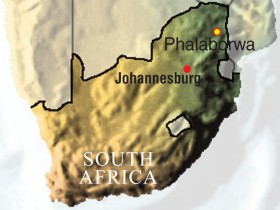Downturn in phosphate market troubles Sasol

The South African phosphoric acid plant of Sasol in Phalaborwa may close by the end of October unless it finds other uses for the operations.
This will affect 245 employees and 250 suppliers. Sasol said it was in talks with unions and authorities to mitigate the impact of a possible closure.
The plant is designed to produce 325,000 tonnes of phosphoric acid for fertiliser and animal feed, with 100,000 tonnes capacity put out of production due to declining demand.
The plant, which manufactures phosphoric acid from mainly phosphate rock and sulphur, has had varying financial success during its history in the Sasol portfolio.
The plant’s profitability is mainly determined by a combination of the feedstock prices of phosphate rock and sulphur, phosphoric acid sale volumes and international phosphoric acid prices.
Despite having explored a number of different options, to avoid the closure of the plant, current feedstock prices are at a level that has rendered the plant’s ongoing operation unsustainable, particularly in a declining phosphoric acid market.
On the back of this continued decline of global and local phosphoric acid prices, as well as increased feedstock prices, Sasol Nitro is projecting significant losses for 2009 from its Phalaborwa operations.
Possible takeover
Foskor Ltd., the Southern Hemisphere’s largest producer of phosphates used in fertilizer, may consider buying the Sasol plant a spokeswoman for Foskor said.
This might not that easy, since in the past at least one earlier attempt to buy the plant was blocked by antitrust authorities.
The Sasol plant produces phosphoric acid made from phosphate rock mined at state-owned Foskor’s adjacent mine.
According to Sasol there will be a continued decline of global and local phosphoric acid prices, as well as increased feedstock prices.
Foskor increased its phosphate-rock price to such an extent that Sasol considered shutting down its plant in 2004 already.










